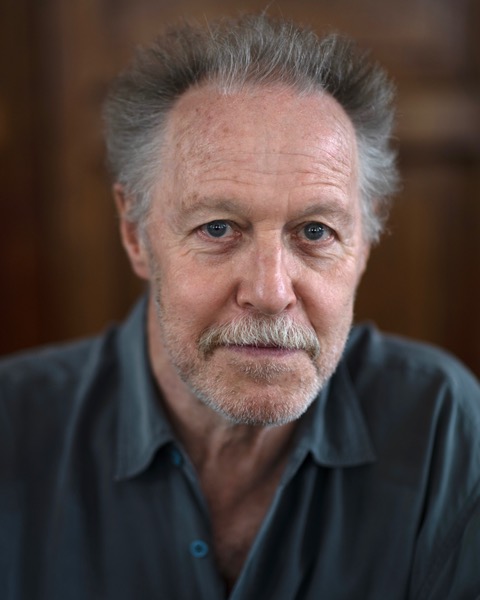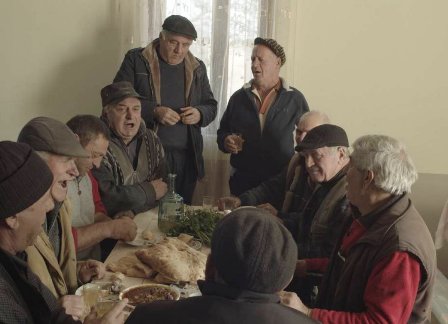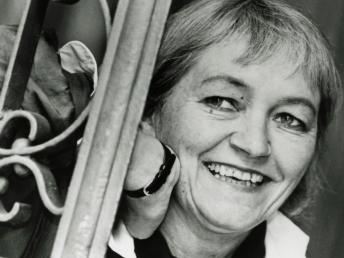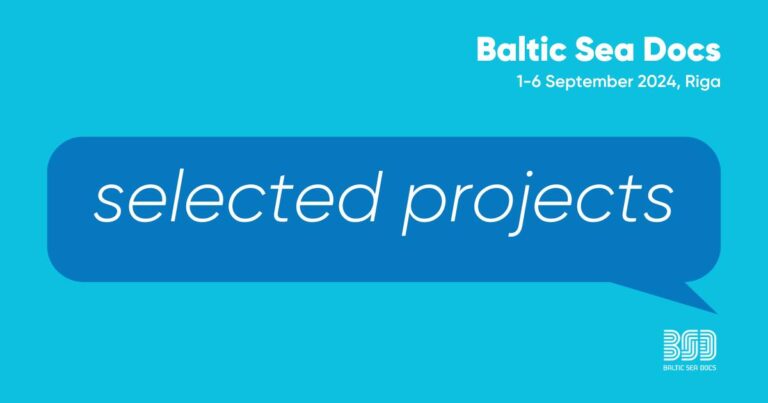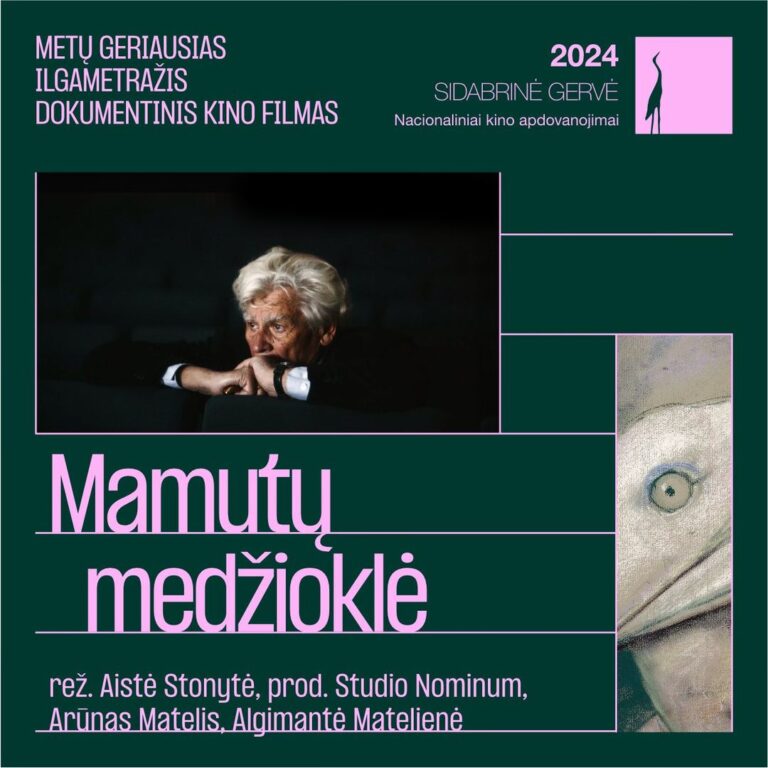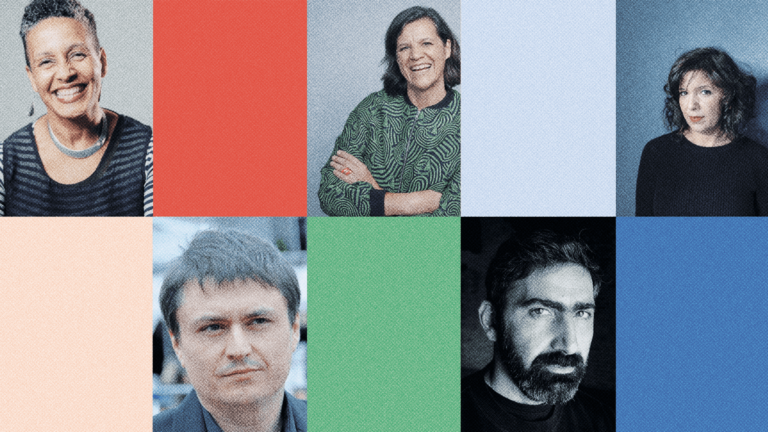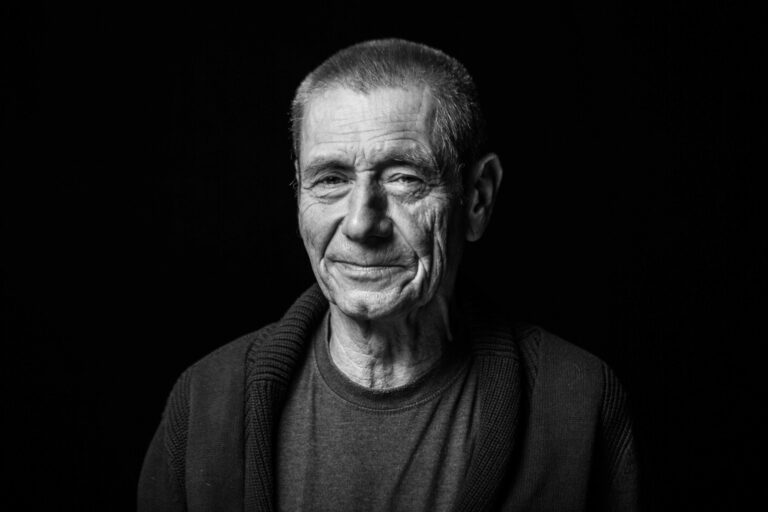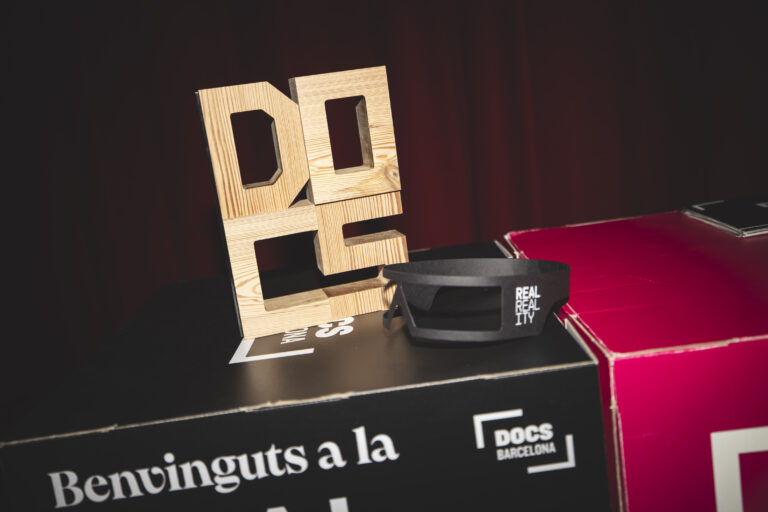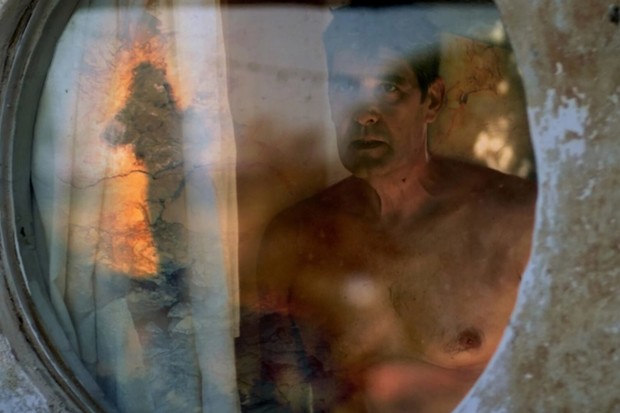


Maryna Stepanska and Darya Bassel on Docudays
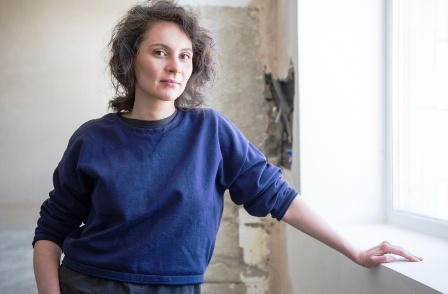
Darya Bassel: “Documentary cinema speaks better to people about events happening right here and now”
A conversation between the Ukrainian filmmaker and screenwriter Maryna Stepanska and Darya Bassel, the Director of the DOCU/PRO Industry Platform and film producer, about the growth of the film festival, about TV and creative documentaries, and about the changing landscape of documentary cinema in Ukraine.
Maryna Stepanska: I suggest that we think back to the time before the war when everything was just starting – when you were working in the programming department and I was bringing out medals onto the stage in a pretty dress. What has changed significantly at Docudays since then? It used to be a small-scale, cosy festival. It was made by friends who really enjoyed all of this.
Darya Bassel: Now it’s also made by people who enjoy all of this. The team has just gotten a bit bigger.
It’s grown a bit, but I think that Docudays, just like documentary cinema, has limits to its growth. It’s hard for me to imagine a documentary as a superhit that makes billions.
This is its own niche, and you, of course, can reach beyond it, like 20 Days in Mariupol, but I think that the number of viewers is still limited. People who watch documentaries are a particular audience.
Let’s elaborate on that ‘particular audience’. I recently talked to some filmmakers from abroad. They said, “Let’s write a script right now for a feature film about the phenomenon of civilians who’ve unexpectedly become members of the military. It’s an important subject.” I said, “There are already dozens of documentaries about this, made not only by Ukrainians but by Europeans as well.” And they replied, “Documentaries are for snobs. Only when feature films take on this topic will it then truly be present in broader circles.” What do you think about this?
I think it’s true, but for me it doesn’t mean that documentaries are worse while features are better, or vice versa. And I wouldn’t divide our audience into snobs and non-snobs. We see something similar in the Ukrainian film community today, where there’s a division into people who do auteur documentaries, so-called snobs who supposedly hate TV filmmakers; and TV filmmakers who are supposedly doing something wrong. I think it’s all nonsense.
If we’re talking about the audience and the fact that we need to communicate certain messages to them through films, we’re also talking about types of instruments. And documentary films, both creative and made for TV, are instruments that work in different ways with different audiences.
What do you mean?
I recently talked to a Dutch student researching cultural diplomacy about how documentary cinema works in this field. We reached the conclusion that documentaries speak better to people about the events happening here and now.
For example, we are experiencing a war. How do we talk about this war with people in Argentina, Germany, Canada? Documentaries do this job much better than features. Because you cannot look away. It is on the one hand a piece of reality, not a figment of someone’s imagination, and on the other hand it is cinema, an art, and it talks to you at the emotional level. You are not shown just numbers or dry stories, you are emotionally tuned in.
Listen, even for an interested audience outside Ukraine documentaries are not easily accessible.
True, but I think this applies to any auteur film.
So I’m having some cognitive dissonance. We’re talking at the same time about documentary cinema as an instrument for communicating messages, and about the fact that its means of communication is quite limited. How can it be effective?
Festivals have rather large audiences.
But these are people who are already engaged.
Yes, but there are special screenings outside festivals, and it’s a widespread practice.
Docudays used to have a project called See Ukraine, first managed by Yulia Serdiukova and then by Olha Birzul. It was small, but truly important and successful.
Even before the Ukrainian Institute was created, and I think even before the very concept of cultural diplomacy entered our daily vocabulary, they were already doing it: making a programme of films and exhibitions and taking them to countries where Russian propaganda was powerful and where it made sense to promote Ukrainian ideas.
I remember how at some point Docudays started performing many parallel functions unrelated to the festival.
I did also want to say that Docudays began the era of documentary cinema in Ukraine, but that wouldn’t be true, because there was the unique workshop of Oleksandr Koval in the Karpenko-Kary University where he trained several filmmakers, such as Valentyn Vasianovych and Alisa Kovalenko. However at the same time, when they made documentaries, they were constantly told that nobody needed them because there was nowhere to show them. And then Docudays arrives. How has it changed the documentary landscape in Ukraine?
I haven’t been working at the festival since the very beginning, but when I joined there were hardly any Ukrainian films in the programme. There was maybe one film per year.
I remember how we were gathering courage to do a national competition. We had these big meetings, lots of discussions; we yelled at one another, we were afraid we wouldn’t be able to collect enough films. But there was a great will to create that competition – even if there weren’t enough great films, just to create a space where people could meet and talk.
You moderated those screenings back then, we made extended Q&As, big discussions, and it was a matter of principle. Back then I felt intuitively that it was a great direction and we should move towards it.
I remember from those Q&As that the audience had clear ideas how documentaries should be made, and there were very heated arguments about it!
If this was my conversation with a donor, I would be asked how the impact of Docudays can be measured. I don’t know how to measure it, but some documentary filmmakers say they’ve been affected by Docudays. I want to believe it’s true.
And in your opinion, would Ukrainian names appear on the international documentary map without Docudays?
I think they would, but maybe not in such numbers, and maybe it would be more difficult for them.
I don’t want to say that there would be nothing without us, but at some point we started organising regular delegations of Ukrainian documentary filmmakers to IDFA, DOK Leipzig and so on. It used to be funded by the State Cinema Agency back when it was led by Pylyp Illenko, and then when the Ukrainian Institute was created it began supporting these trips. We made presentations of projects by Ukrainian filmmakers, and I think that it signalled to the international community that there was a community here in Ukraine as well. There’s not just one director who comes with one hard-earned film, but there’s an industry. It’s small and complex, it’s a low-capacity country, but there are five or seven filmmakers here who have interesting projects.
When I started to produce films myself, I realised that it’s very important to feel that there’s someone in the space around you who can support you.
I’ve only just realised that Docudays worked purposefully to find Ukrainian authors and integrate them into the international documentary scene. Some festivals do education, but you decided to do cultural diplomacy.
And so you’ve created your own niche at the festival. Why did you decide to organise Industry Days specifically?
I always answer that I don’t know. It just happened somehow.
It was also one of the stages of growth. At first we were afraid to do a national competition, and then we were afraid to organise an industry section, because it didn’t seem to fit into the picture of a human rights documentary film festival. Docudays has always been a festival primarily for the audience, it’s a classic festival in that regard.
At the same time, the main goal of the industry section is to support professionals. But because there are so many film professionals in the Docudays team, of course, at some point they become curious about how to make films themselves and how to support other people who do that.
We started to spontaneously organise workshops, to support short films. And then we looked and saw that we already had a bunch of workshops, and they could be organised into a separate programme at the festival. Then we found a focus in realising that we don’t want to claim to be a major industry platform in Eastern Europe, or to compete with IFDA or the major markets. It was important for us to continue supporting Ukrainian filmmakers.
I remember that my main argument was that we didn’t have travel grants, so it was hard for us to go anywhere. So I offered to bring people from abroad here. And so our goal became to help foreigners discover Ukrainian talent and films, and to create opportunities for local authors to meet people who they could previously only see at major platforms abroad.
So in the first wave you brought Ukrainians onto the international market. In the second wave you brought the international market to Ukraine. What should the third wave be?
It’s actually a good question, because of course when the full-scale war began,the interest in Ukrainian documentaries increased. Ukrainians are being invited everywhere, and everyone’s been everywhere.
So at some point I was asking myself, what are we doing the industry section for, these screenings or pitchings, if all the projects have already been pitched at all the markets this year?
This year we’re doing rough-cut screenings, and I was also hesitant about that. But then I just asked the Nonfiction Film Guild if they needed this, and everyone said they did.
I know there are projects that haven’t been presented on international markets yet. New people with interesting perspectives on the world are entering documentary cinema. In addition, to encourage important decision makers to participate in this, we need to show them unique materials.
OK, the full-scale war began, everyone lost their usual way of life, opportunities to make feature films disappeared. I remember that back then Docudays started working right away, accumulating aid for the film community and at the same time answering requests for films about what was happening here and now. A year or two passed, everyone gradually came around and decided that documentaries are basically the quickest and cheapest thing we can do right now. People who never made documentaries before, never watched them, never wondered about them, didn’t even think about them as cinema – everyone has woken up and said that now they only make documentaries. What do you think about all of this?
I think about this process at two levels. My first response was strong irritation, because, like you said, people who were never interested, never watched it and never needed all this at all suddenly came. For example, big businesses or major studios were never interested in this.
Or major broadcasters.
Yes. I mean, it’s great that people have become interested in documentary cinema. But it was depressing for me that this was not a sincere interest but rather a business interest. People who lost their business with Russia started to make documentaries; they decided to check what else works. “Oh, documentaries, I think they do well, let’s make them.”
It pains me a little, purely at the human level. I don’t believe that this can produce truly great results.
Why?
Maybe speed will work in TV documentaries. But creative, auteur documentaries are only made using different resources and different motivations. It is the kind of cinema where you need 150 shifts rather than 20 shifts, not half a year of your life but two years.
Why does it require so much time?
Because a different approach is at work here. You can’t write a script in advance, build it exclusively on interviews, edit it together quickly and publish. You need to live a certain period of life with your subject of interest, the person, place, or event. And that requires time.
We are constantly having this discussion – creative documentaries versus TV documentaries.
I’m also wondering why we always oppose these two types of documentary filmmaking. The industry is healthy when all of them exist at once.
Before we start working on a project, we need to ask ourselves honestly who we’re working with, who we’re doing it for, where we get funding.
If we’re aware that we’re making creative documentaries, we don’t take the project to TV channels; we go to national foundations or European public broadcasters, who work differently from commercial television and support creative documentary cinema.
Arte?
Yes. For example, there’s a number of films now united in the Generation Ukraine collection which were created and supported by ARTE Group channels. It also includes my project, Displaced.
But we need to understand that this is public television, that is, a channel that does not seek commercial success. The government has created this channel for cultural diplomacy.
There’s a public broadcaster on the Ukrainian market as well, Suspilne, but for now its capacity is not very big and it is not as strong an actor in the documentary market or in the film market in general as their EU colleagues.
In short, you wouldn’t take the same project both to Netflix and to Arte France. They measure success differently.
How will festival documentary cinema develop in the future, in your opinion?
We’ll need to see if the presence of documentaries on big screens, on YouTube and on VOD platforms changes, if the number of people watching documentaries due to the current boom is increasing sustainably or if it’s just a temporary phenomenon. Many new people have entered documentary filmmaking now, and I hope some of them will stay for a long time.
Photo of Darya Bassel.
